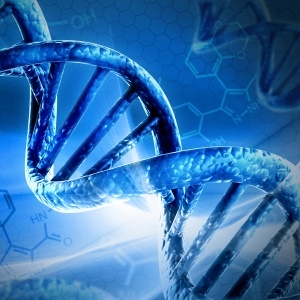
Imagine being able to have your healthcare professional factor in your own genetic susceptibilities when providing medical nutrition advice so that any recommendations could be specifically focused on optimising your health and minimising your risk of disease.
Sound a bit far-fetched? Well, this kind of information is available today and is developing at a rapid rate. While it is currently not used extensively, it is likely to become part of standard practice in the nearby future.
DNA: The coding material of life
Within each of our cells, we have genetic information called DNA or "deoxyribonucleic acid" which is passed on from one generation to the next. This contains all of the information a cell needs to carry out the processes which sustain life.
Read: What's your exercise DNA?
The Human Genome Project, an international effort, resulted in the identification of the building blocks of DNA and mapped out the full sequence of human genetic material. Since the completion of this project in 2003, other technological advances and scientific discoveries have led to a greater understanding of how certain genes influence processes in our body that influence our health.
It’s all in our genes
Genes are stretches of DNA that are responsible for the formation of proteins that perform specialised functions within the body, as well as sequences that control when and how these proteins are formed. Genes can be turned "on" or "off" in response to both internal messages such as hormones and external signals such as diet.
Genes vary in size, and humans have between 20 000 and 25 000 of them. Most genes are the same in all individuals but around 1% of genes are slightly different from one person to the next. These natural variations account for differences such as the colour of our eyes and hair, as well as our blood type. Some of these variations may also influence our risk of developing certain diseases.
The science of nutritional genomics
The interactions between genes, diet and other lifestyle factors and how these influence health and disease is the focus of nutritional genomics. Nutritional genomics can be seen as an assessment tool that provides genetic information about a specific person.
Read: Craving coffee? It's in your DNA!
This allows for the assessment of the health and disease susceptibilities of that individual and can provide the ability to identify modifiable lifestyle factors which are most likely to promote health and prevent disease in that person. While there is a large amount of research required to realise the full potential of the role of nutrition in preventing disease and promoting health, this emerging science provides the tools for identifying key genetic variations which can be used to tailor advice to promote health.
What can genetic testing tell me today?
There are a number of genetic tests currently available locally and internationally. Locally, these include, but are not limited to: tests that look at genes that are associated with weight loss resistance, use of fat for energy and how one stores fat, body mass index (BMI), muscle mass and body fat.
There are also tests that look at genes involved in processes such as cholesterol regulation, bone metabolism, vitamin B metabolism and methylation, inflammation, detoxification, antioxidant status and insulin sensitivity.
From a sport and activity point of view there are tests that can provide insight into how you should exercise according to your genetic profile, that provide information about your injury susceptibility and recovery, inflammation and oxidative stress levels associated with training, as well as the types of training best suited to you.
Read: Catalogue of DNA helps locate roots of disease
When it comes to interpreting the test results, it is important to consult with a healthcare professional that is specifically trained in this field and that can understand, interpret and communicate these results in a way that is meaningful to you. It is also important that these tests are used as part of a broader nutrition assessment so that they are used as an additional tool to guide appropriate advice, instead of being used in isolation.
What difference does genetic testing make?
In terms of weight management specifically, research has been done to understand whether including genetic information as one of the tools used to achieve weight loss any effect on the results had achieved. These international clinical trials have shown that DNA-based dietary advice helps to achieve better results than traditional weight loss programmes that focus on dietary restriction and physical activity alone.
The information that contributes to this success includes understanding how specific genetic variations interact with diet and environmental factors, and consequently influence the regulation of body weight and fat mass.
Read: 'Genes' may be just an excuse for overeating
This information is then used to tailor nutrition and physical activity advice, including meal plans, menus and recipes. It also includes guidance on the use of supplements (if necessary) and the composition of the meal plan in terms of the optimal amount of carbohydrate, protein and fat required in one’s diet for optimal weight loss.
For more information about the types of testing available as well as a dietitian to assist you, visit www.dnalysis.co.za
Read more:
'Obesity gene' doesn't affect ability to lose weight
References:
1. Krause’s Food and the Nutrition Care Process. L. Kathleen Mahan, Janice L. Raymond. 14th Edition. 2016.
2. Position of the Academy of Nutrition and Dietetics: Nutritional Genomics. Journal of the Academy of Nutrition and Dietetics, 2014: 114: 299-312.
3. Steinberg et al. Reducing Metabolic Syndrome Risk Using a Personalized Wellness Program. Journal of Occupational & Environmental Medicine, 2015: 57: 1269-1274.
4. Meisel SF et al. Genetic Susceptibility Testing and Readiness to Control Weight: Results from a Randomized Control Trial, 2015: 23(2): 305-12.




 Publications
Publications
 Partners
Partners










